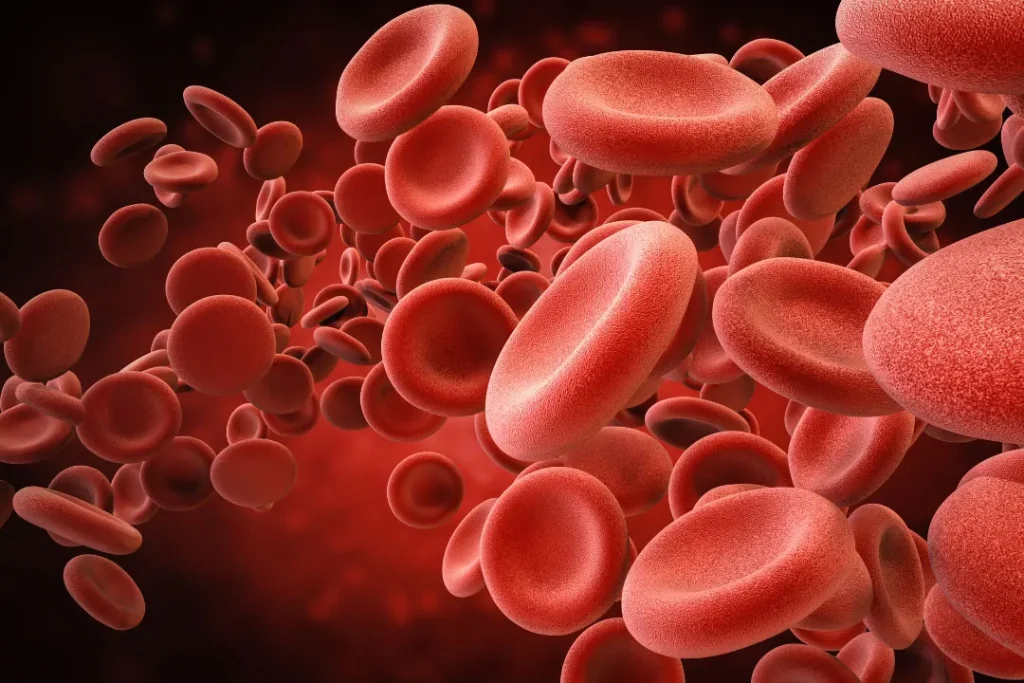The small, tart buds known as capers, often used in Mediterranean cuisine, are much more than just tasty ingredients. Due to their distinct composition and potential health benefits, capers, scientifically known as Capparis spinosa, have caught the attention of the medical and nutritional research communities. You’re invited to read about the nature of capers, their health advantages, and the safety profile related to their use all covered in this article.
You May Also Like:
5 Great Nootropic Herbs for Focus and Mental Clarity
5 Great Nootropic Herbs for Energy, Focus, and Productivity
The Nature of Capers
Capers are the juvenile flower buds of the Capparis spinosa plant, which is native to the Mediterranean and certain regions of Asia. Capers have long been used in both food preparation and medicine. They are often harvested, dried, and then pickled in salt, vinegar, or brine to give them their distinctively sour taste. They have been and continue to be key ingredients in pasta dishes, salads, sauces, and more.
Capers are a biochemically diverse source of phytochemicals, including glucosinolates, alkaloids, flavonoids, phenolic compounds, and their derivative isothiocyanates. Their antioxidant, anti-inflammatory, and possible anti-carcinogenic characteristics are primarily attributed to these phytochemicals.

Health Benefits of Capers
The abundance of bioactive chemicals in capers is what gives them their health advantages. Two, major flavonoids are found in capers: rutin and quercetin. These particular flavonoids are known to have strong antioxidant capabilities. These antioxidants may shield your cells from oxidative stress-induced damage by neutralizing dangerous free radicals, and in so doing, they lower your risk of chronic illnesses, including cardiovascular problems, diabetes, and cancer.
Additionally, capers are a robust source of glucosinolates, which our bodies use to make isothiocyanates. Conclusions drawn from scientific research suggest that isothiocyanates contain anti-carcinogenic characteristics, which is good news for those living with various forms of cancer. Furthermore, they promote phase II detoxification enzymes, which improves your body’s capacity to eliminate carcinogens. However, more clinical research is required to corroborate these results.
On top of that, capers include vital vitamins and minerals like calcium and magnesium that support general health and wellbeing. Magnesium and calcium play roles in several metabolic processes and bone health. Moreover, vitamin K and vitamin A are particularly abundant in capers. While vitamin A promotes eye health, vitamin K is essential for supporting bone health and ensuring proper blood clotting. Therefore, capers’ potential for positively affecting your health is wide.

Chemistry of Capers
The astonishing variety of bioactive substances found in capers contributes to their special nutritional profile. For example, they are especially high in phenolic compounds.
Organic substances known as phenolic compounds are defined by the presence of several phenol units. Their capacity to function as reducing agents, hydrogen donors, and singlet oxygen quenchers contributes strongly toward their reputation for their antioxidant qualities.
Among the phenolic substances, capers are rich in flavonoids, some of which are mentioned in an earlier section. Flavonoids are hypothesized to have positive impacts on health via activating antioxidant and cell signaling pathways.
Physiological Mechanism of Action of Capers
The complex biochemical components of capers and their physiological effects on the body are what give them their medicinal properties. Here, the article repeats and categorizes some important mechanisms:
- Antioxidant Activity: Rutin and quercetin are two antioxidants abundant in capers. The body’s toxic free radicals are scavenged by these antioxidants, reducing oxidative stress and cell damage. This decrease in oxidative stress lowers the risk of chronic illnesses including diabetes, cancer, and heart disease.
- Anti-Inflammatory Effects: Caper flavonoids lessen inflammation in the body by inhibiting the synthesis of inflammatory mediators, including cytokines and eicosanoids. People living with inflammatory disorders, such as arthritis and inflammatory bowel disease, may experience lessened intensity of symptoms as a result of regular ingestion of capers.
- Possible Anti-Carcinogenic Effects: Capers’ glucosinolates are converted to isothiocyanates, which have been linked to possible anti-carcinogenic effects. Through the induction of apoptosis (programmed cell death) and the interruption of the cell cycle in cancer cells, isothiocyanates prevent the development and spread of cancer. They also activate the phase II detoxification enzymes, which improves the body’s capacity to eliminate carcinogens.
- Nutritional Support: Capers provide important nutrients including vitamins and minerals in addition to their bioactive substances like vitamin K, vitamin A, calcium, magnesium, and others.
Capers’ health potential exists thanks to their powerful bioactive components. It’s important to keep in mind that study is continuing and further research is required to fully understand the possible advantages and disadvantages of consumption as part of your diet.

Optimal Dosage of Capers
For the time being, there are no standards in place concerning caper dosage. They are often not taken as supplements, but rather as a component of a diet. Depending on personal tastes and regional culinary customs, food consumption varies substantially. Consider researching some recipes that contain capers for ideas on portions if you choose to eat some.
Side Effects
Most people typically believe that eating capers as part of a diet is harmless. However, because of their high salt content, which comes from the pickling process, they should only be taken in moderation, especially by those with renal or hypertension problems.
Capers’ possible medication interactions have not been extensively researched. However, due to vitamin K’s potential to impair the efficiency of blood thinners, care is suggested for those who use them due to their high vitamin K level. Before adding capers or any other supplement to your dietary regimen, seek and take medical advice offered to you about possible harmful effects that may occur as a result of your particular health situation.

Potential Substance Interactions
Given their nutritional use, caper interactions with other drugs have received little research and are mainly unknown. However, it is conceivable to imagine probable interactions given the components of capers. Before making large dietary changes, particularly for those using long-term medicine, it is usually advisable to consult a qualified medical advisor because of these possible interactions. That said, capers are normally safe to eat.
Due to their high vitamin K content, capers may interact with several drugs, most notably anticoagulants like warfarin. The mechanism by which the blood clots in the body depends heavily on vitamin K. As a result, vitamin K-rich meals may reduce the effectiveness of anticoagulants, which function by preventing vitamin K from doing its job. Significant dietary vitamin K alterations should be avoided in those using warfarin or comparable drugs without first seeing a doctor.
Caper glucosinolate isothiocyanates may affect how certain medications are metabolized. The bioavailability of drugs processed by phase II detoxification enzymes may be impacted by their stimulation of these enzymes. While this combination may have anti-carcinogenic benefits, it may also reduce the effectiveness of certain drugs. The clinical significance of this interaction hasn’t yet been determined, however. It cannot be reiterated how important it is for you to consider your unique health conditions when choosing substances to add to your diet.
Lastly, intake of capers should be careful in those who are regulating their blood pressure levels due to their high salt content, which may possibly increase the effects of antihypertensive medication.
Future studies may shed additional light on the possible interactions between capers and other foods, but for now, our present understanding suggests that adding capers to our diets should be done with caution and in moderation. Capers’ evident culinary and nutritional potential is best realized when they are included into a varied and well-rounded diet. It’s important to keep in mind that capers, like other foods, are not a panacea but rather a tool that, when utilized wisely, may enhance general health and wellness.
Capers in Dietary Practice
Capers exhibit an intriguing mix of gastronomic allure and health advantages. A variety of meals benefit from the taste and nutrients that capers provide. They pair nicely with seafood and meat. The secret is to use them sparingly, taking into account their strong flavor and high salt content. To reduce the salt content, give them a thorough rinse before using. Instead of taking capers as a solitary supplement, it is best for you to include them in a varied and well-balanced diet to optimize their health advantages and reduce any possible hazards.

Best Responsible Use of Capers
Because of its bioactive ingredients, capers are said to provide a variety of health advantages. Understanding their nutritional make-up and any negative consequences is the key to obtaining these advantages safely. The following suggestions are for caper eating best practices:
- Moderation is key: While capers are nutrient-rich, careful attention must be given to their high salt level. Overconsumption might result in a high salt intake, possibly worsening illnesses including renal disease and hypertension. It is therefore essential to eat capers in moderation.
- Rinsing before use: Capers often contain a lot of sodium because of the pickling process. It is advised to properly rinse capers under running water before eating or cooking in order to lessen this.
- Incorporating capers into a balanced diet: Include capers in a balanced, nutrient-rich diet rather than depending on them as a single supplement. This guarantees that you’re receiving a broad range of nutrients necessary for excellent health.
- Examining possible interactions: Before drastically increasing your intake of capers, talk to your doctor if you’re on any medications, especially blood thinners or antihypertensive medications. Although capers are typically healthy, their high salt and vitamin K concentration raises the possibility of drug interactions.
- Recognizing unique requirements: Nutrition is very individualized, and what works for one person may not for another. How your body reacts to certain foods, such as capers, may be strongly influenced by personal health problems, lifestyle choices, and hereditary factors.
Capers are full of critical nutrients and may even help avoid chronic illnesses, among other health advantages. Following these suggestions will enable you to take advantage of the health-enhancing qualities of capers while minimizing any possible hazards.
Capers:
Conclusion
Capers are not just a refreshing garnish or a sour counterpoint to a savory dish for dinner. Capers are packed with nutritional value and powerful benefits when consumed in moderation and in consideration of interactions with medications. They are a plant-based substance with multiple advantages to general health and specific health conditions. The article provides information regarding the consensus of research on its potential to improve your quality of life when paired with mindful, medical advice.
References:
- Health Benefits of Capers. Retrieved from: https://www.webmd.com/diet/health-benefits-capers
- Caper (Capparis spinosa L.): An Updated Review on Its Phytochemistry, Nutritional Value, Traditional Uses, and Therapeutic Potential. Retrieved from: https://www.frontiersin.org/articles/10.3389/fphar.2022.878749/full
- Capers and caperberries. Retrieved from: https://www.researchgate.net/publication/286742487_Capers_and_caperberries
Important Note: The information contained in this article is for general informational purposes only, and should not be construed as health or medical advice, nor is it intended to diagnose, prevent, treat, or cure any disease or health condition. Before embarking on any diet, fitness regimen, or program of nutritional supplementation, it is advisable to consult your healthcare professional in order to determine its safety and probable efficacy in terms of your individual state of health.
Regarding Nutritional Supplements Or Other Non-Prescription Health Products: If any nutritional supplements or other non-prescription health products are mentioned in the foregoing article, any claims or statements made about them have not been evaluated by the U.S. Food and Drug Administration, and such nutritional supplements or other health products are not intended to diagnose, treat, cure, or prevent any disease.


